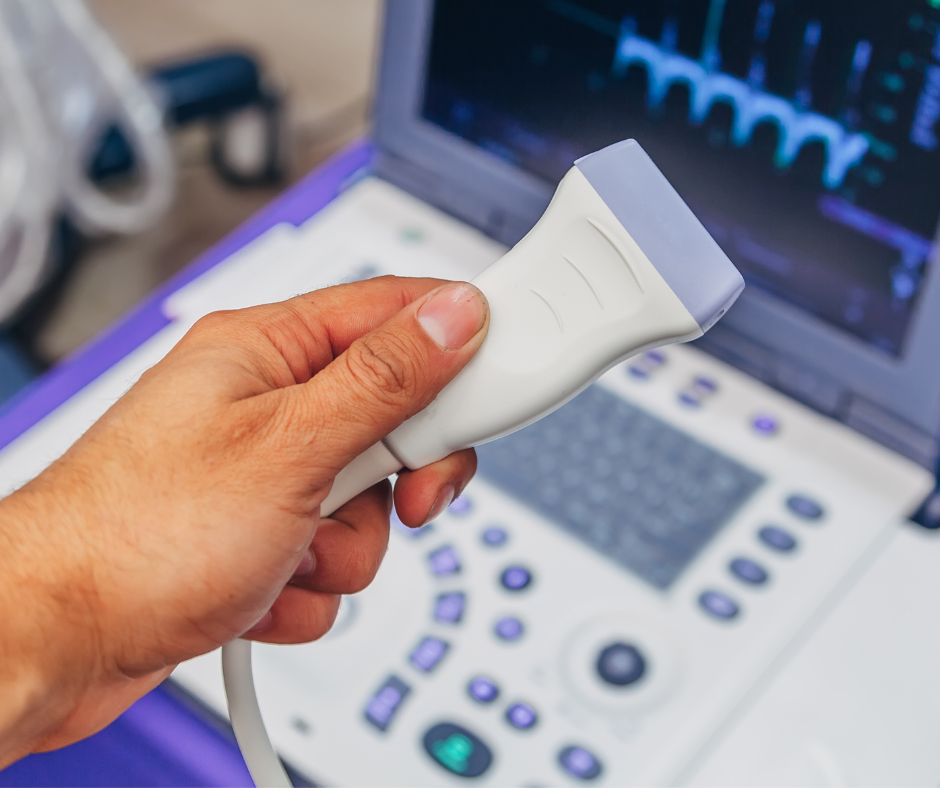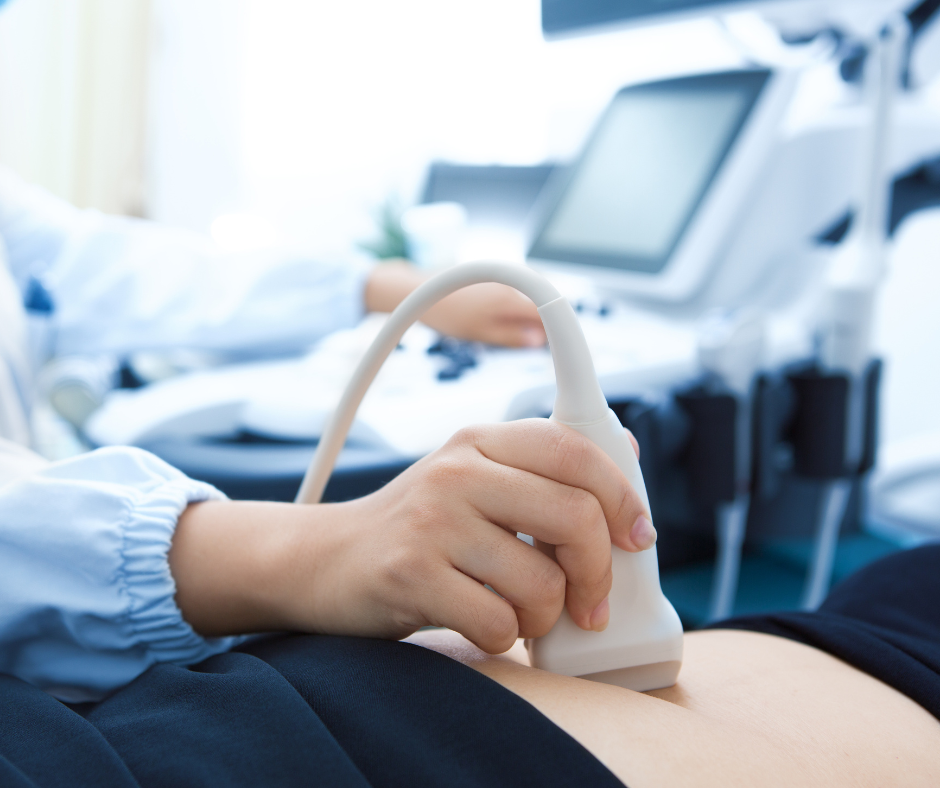Introduction
Many people enjoy a cup of coffee to start their day, but it’s important to follow guidelines to ensure accurate results when it comes to medical procedures. If you have an upcoming ultrasound appointment, you may wonder, ‘Can I Drink Coffee Before an Ultrasound?‘. Let’s explore what an ultrasound is and why following medical guidelines is essential.
What Is An Ultrasound?
An ultrasound is a non-invasive medical procedure that uses sound waves to create images of the inside of the body. It is commonly used to examine organs, tissues, and blood flow, providing valuable information that helps doctors diagnose and monitor various medical conditions. Ultrasound imaging is considered safe and painless, making it a widely used diagnostic tool.
Importance Of Medical Guidelines Before An Ultrasound
Medical guidelines are put in place to ensure the accuracy and reliability of ultrasound results. Following these guidelines is crucial to obtain the best possible images and interpretation. When it comes to consuming coffee before an ultrasound, here’s what you need to know:
- Fasted state: Many ultrasound examinations require the patient to be fast. This means refraining from eating or drinking, including coffee, for a specific time before the procedure. This is to prevent interference from food or liquid in the stomach, which can affect the quality of the ultrasound images.
- Avoiding caffeine: Coffee contains caffeine, a stimulant that can affect heart rate and blood pressure. In some cases, caffeine consumption can interfere with an ultrasound’s results. Avoiding caffeine-containing beverages, including coffee, is generally recommended before an ultrasound to ensure accurate readings.
It’s important to note that specific guidelines may vary depending on the type of ultrasound examination and the instructions provided by your healthcare provider. Always consult with your doctor or the medical facility where your ultrasound is scheduled for the most accurate and up-to-date information regarding fasting or dietary restrictions.
In conclusion, when it comes to drinking coffee before an ultrasound, it is generally advised to avoid it to comply with medical guidelines. Following these guidelines helps to ensure accurate and reliable results, allowing healthcare professionals to provide appropriate diagnoses and treatment plans. If you have any questions or concerns about preparing for your ultrasound, please get in touch with your doctor or healthcare provider for guidance.
Can I Drink Coffee Before an Ultrasound? – Guidelines For Preparing For An Ultrasound
General Guidelines For Fasting Before An Ultrasound
If you have been asked to get an ultrasound, you might wonder, ‘Can I Drink Coffee Before an Ultrasound?’. While it’s always best to follow the specific instructions given to you by your healthcare provider, in general, it is recommended to fast for a certain period before an ultrasound. This means refraining from eating or drinking anything, including coffee, for several hours before the procedure. Fasting helps ensure that the ultrasound images obtained are clear and not obstructed by any food or beverage in the digestive system.
Specific Guidelines For Abdominal Ultrasound
When it comes to an abdominal ultrasound, which examines the organs in your abdomen, such as the liver, gallbladder, and kidneys, you will typically be asked to fast for at least 6 hours before the procedure. This includes avoiding coffee, as well as any other food or drink during this fasting period. It is important to follow these guidelines to optimize the accuracy of the ultrasound results.
Specific Guidelines For Bladder Ultrasound
You might not need to fast beforehand for a bladder ultrasound, which specifically focuses on assessing the bladder and urinary tract. However, you may be asked to drink a certain amount of water before the procedure to ensure your bladder is adequately filled. In some cases, you might be instructed to finish drinking the required amount of water at least 1 hour before the ultrasound appointment. It’s important to follow your healthcare provider’s guidance to prepare for this type of ultrasound correctly.
It’s worth noting that the guidelines for fasting might vary depending on the specific type of ultrasound being performed and the preferences of the healthcare provider or facility conducting the procedure. It is always recommended to consult with your healthcare provider or follow the specific instructions to ensure the best possible ultrasound experience and results.
In conclusion, fasting before an ultrasound is generally recommended to ensure clear images. While it’s best to avoid coffee and any other food or drink during the fasting period, it’s essential to follow the specific guidelines provided by your healthcare provider. By following these guidelines, you can help to guarantee the accuracy of your ultrasound results and ensure a smooth and successful examination.
Guidelines For Preparing For Transvaginal Ultrasound
Protocol For Transvaginal Ultrasound In Females
Regarding medical procedures like transvaginal ultrasounds, it is important to follow certain guidelines to ensure accurate results. These guidelines are designed to create a comfortable and safe experience for patients. For females undergoing a transvaginal ultrasound, here are the protocols to be aware of:
- Clothing: It is recommended to wear loose-fitting, comfortable clothing to the appointment.
- Empty Bladder: A transvaginal ultrasound is most commonly performed with an empty bladder. However, confirming with your healthcare provider if this applies to your case is advisable.
- Positioning: During the procedure, you will be asked to lie on your back with your knees bent, and a sheet or drape will be provided for privacy.
- Ultrasound Probe: The ultrasound probe used in transvaginal ultrasounds is covered with a disposable sheath and sterile gel. It is inserted into the vagina to capture detailed images of the pelvic organs.
Instructions For Preparing For Transvaginal Ultrasound
To obtain the best possible images, properly preparing for a transvaginal ultrasound is important. Here are some instructions to follow:
- Consultation: Before the procedure, you may consult your healthcare provider. This is an opportunity to discuss concerns or ask questions about the transvaginal ultrasound.
- Timing: Your healthcare provider may sometimes recommend scheduling the ultrasound on specific days of your menstrual cycle. Follow any instructions provided regarding the timing of the procedure.
- Bowel Preparation: In certain situations, bowel preparation may be necessary before a transvaginal ultrasound. Your healthcare provider will provide specific instructions if this applies to your case.
- Medications: Inform your healthcare provider about any medications you are taking, as certain medications may need to be adjusted or temporarily stopped before the procedure.
- Relaxation Techniques: If you feel anxious or tense about the procedure, relaxation techniques like deep breathing or visualization can help ease discomfort.
- Personal Hygiene: Maintaining regular personal hygiene is important before a transvaginal ultrasound. It is recommended to shower or bathe before the appointment.
Remember, every patient’s situation is unique, and it is important to follow the specific instructions given by your healthcare provider. By preparing properly and following the guidelines, you can ensure a smooth and successful transvaginal ultrasound experience.
Guidelines For Preparing For Prostate-transrectal Ultrasound
Protocol For Prostate-transrectal Ultrasound
Before discussing whether you can drink coffee before a prostate-transrectal ultrasound, it’s important to understand the general protocol for the procedure. Prostate-transrectal ultrasound is a commonly performed diagnostic test that allows doctors to examine the prostate gland. A small ultrasound probe is inserted into the rectum to produce detailed prostate images during the procedure.
Instructions For Preparing For Prostate-transrectal Ultrasound
While specific instructions may vary depending on your healthcare provider, here are some general guidelines to follow when preparing for a prostate-transrectal ultrasound:
- Bowel preparation: Your healthcare provider may ask you to perform a bowel preparation, including a liquid diet and a laxative, to ensure the rectal area is clear and clean for the procedure.
- Empty your bladder: Empty your bladder before the test, as having a full bladder can interfere with the accuracy of the ultrasound images.
- Medication review: Inform your healthcare provider about the medications you are taking. Some medications may need to be temporarily stopped or adjusted before the procedure.
- Fast for a specific period: Your healthcare provider may ask you to fast for a specific period before the procedure. This may include avoiding food and beverages, including coffee, to prevent interference with the test results.
Let’s address the question: Can you drink coffee before a prostate-transrectal ultrasound? It is generally recommended to avoid consuming coffee before any medical procedure that involves fasting. Coffee contains caffeine, stimulating the digestive system and increasing bowel movements. This can affect the accuracy of the ultrasound images during the procedure.
To ensure the best results, it is advisable to follow the instructions provided by your healthcare provider regarding fasting and consuming food and beverages, including coffee, before a prostate-transrectal ultrasound. If you have any concerns or questions, it is best to consult with your healthcare team for specific guidance based on your circumstances.
Remember, following the guidelines provided by your healthcare provider is crucial for a successful and accurate prostate-transrectal ultrasound.
Guidelines For Preparing For Ultrasound-guided Biopsies
Guidelines For Ultrasound-guided Breast Biopsy
It is common for doctors to recommend an ultrasound-guided biopsy to diagnose breast abnormalities. If you are scheduled for this procedure, it is essential to follow these guidelines:
- Avoid coffee: Refrain from drinking coffee or other caffeinated beverages for at least four hours before the biopsy. Caffeine can stimulate your breast tissue, making it more difficult to obtain accurate results from the ultrasound.
- Do not use lotions or creams: Do not apply any lotions, creams, or powders to your breasts on the biopsy day. These substances can interfere with the ultrasound images and affect the accuracy of the procedure.
- Wear a comfortable outfit: Dress in loose-fitting clothing on the biopsy day. You will need to remove your clothing from the waist up, so choose a top or blouse that is easy to remove and put back on.
Guidelines For Liver Biopsy, Paracentesis, Thoracentesis, And Prostate Biopsy
For procedures such as liver biopsy, paracentesis, thoracentesis, and prostate biopsy, the guidelines are slightly different:
- No fasting required: Unlike other medical procedures, you do not need to fast before these biopsies. You can eat and drink as you normally would.
- Inform your doctor about medications: Inform your doctor of any medications or supplements you take. Some medications may need to be temporarily stopped before the procedure to reduce the risk of bleeding.
- Follow pre-procedure instructions: Your doctor will provide specific instructions about what to do before the biopsy. It is crucial to follow these instructions carefully to ensure the best possible outcome.
Ultrasound-guided biopsies are minimally invasive procedures that help doctors diagnose various medical conditions. By following these guidelines, you can help ensure that the procedure goes smoothly and that accurate results are obtained. Always consult your healthcare provider for specific instructions tailored to your needs.
FAQ: Can I Drink Coffee Before an Ultrasound?
Q: Can I drink coffee before an ultrasound?
A: No, it is generally recommended to avoid consuming coffee before an ultrasound.
Q: Why do I need to avoid coffee before an ultrasound?
A: Coffee is a stimulant that can affect the digestive system and interfere with the accuracy of the ultrasound results. It can cause your digestive organs to contract, making it more difficult for the ultrasound technician to obtain clear images.
Q: How long before the ultrasound should I stop drinking coffee?
A: It is advised to refrain from consuming coffee for at least 8 to 12 hours before your scheduled abdominal ultrasound.
Q: Can I have other beverages instead of coffee?
A: It depends on the specific instructions provided by your healthcare provider. In general, it is recommended only to drink water and take necessary medications before an ultrasound. However, if your healthcare provider allows it, you may be able to drink other clear liquids like water and juice in moderation.
Q: What if I accidentally consumed coffee before the ultrasound?
A: It is important to inform the ultrasound technician or your healthcare provider if you have consumed coffee or any other prohibited substances before the procedure. They can assess the situation and advise you on the best course of action.
Q: What if I need to take medications before the ultrasound?
A: In most cases, taking necessary medications with small sips of water is allowed before an ultrasound. However, it is always recommended to follow the specific instructions provided by your healthcare provider.
Q: Are there any other preparations I need to make before an ultrasound?
A: In addition to avoiding coffee, you should also refrain from eating or drinking (except water and necessary medications) for at least 8 hours before the exam. The healthcare facility may provide you with more detailed instructions based on your specific ultrasound examination.
Q: What can I expect during the ultrasound procedure?
A: During the procedure, you will be asked to change into a hospital gown and lie on an examination table. Warmed gel will be applied to your abdomen to enhance the image quality. The images will be displayed on a computer screen while the technician moves the ultrasound wand over your abdomen.
Conclusion
Now you should know the answer to ‘Can I Drink Coffee Before an Ultrasound?’. When it comes to preparing for an ultrasound, following medical guidelines is crucial to ensure accurate results and patient safety. While it may be tempting to enjoy a cup of coffee before the procedure, it is generally recommended to avoid consuming coffee or any caffeinated beverages. However, it is always best to consult your healthcare provider or the medical facility conducting your ultrasound for specific instructions.
Importance Of Following Medical Guidelines Before An Ultrasound
It is important to understand that medical guidelines exist for a reason. Ultrasound exams are used to assess various parts of the body and can provide vital information for diagnosing and treating certain medical conditions. By following the recommended guidelines, patients can be properly prepared for the procedure, increasing the chances of obtaining accurate and reliable results. Skipping important instructions, such as consuming specific foods or medications, can potentially impact the ultrasound’s quality and the examination’s overall effectiveness.
Clarification On Coffee Consumption Before An Ultrasound
Caffeine, commonly found in coffee, stimulates the digestive system and increases heart rate. These effects can lead to temporary changes in the body, including increased bowel movements, which can interfere with the ultrasound examination. Caffeine consumption can also cause temporary abdominal discomfort or bloating, which can affect the clarity of the ultrasound images. As a result, it is generally advised to avoid consuming coffee or any other caffeinated beverages before an ultrasound.
It is important to note that these guidelines may vary depending on the specific instructions provided by your healthcare provider or the medical facility conducting the ultrasound. They will be able to provide you with personalized advice based on your circumstances and medical history. Therefore, it is always recommended to consult with them for clarification and to ensure that you follow the most appropriate guidelines for your situation.

Deb Carlson at Crosslake Coffee: Join Deb at Crosslake Coffee for a delightful blend of community, caffeine, and creativity. Discover the cozy ambiance and warm hospitality that make this local coffee shop a beloved gathering spot. From expertly crafted espresso drinks to mouthwatering pastries, Deb invites you to savor every sip and bite. Stay connected with the latest updates on specials, events, and live music performances by following Deb Carlson at Crosslake Coffee on social media. Embrace the vibrant online community and share your love for great coffee and good company with fellow enthusiasts. Don’t miss out on a moment of the Crosslake Coffee experience – connect with Deb on social media today.



